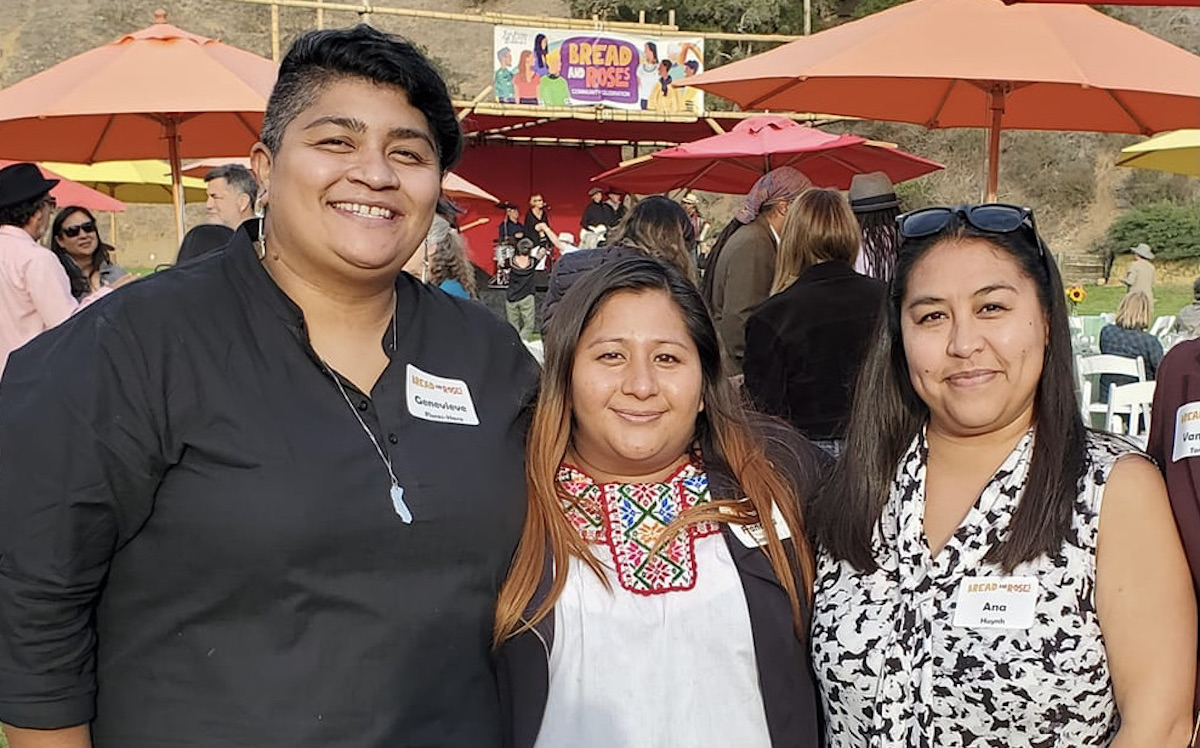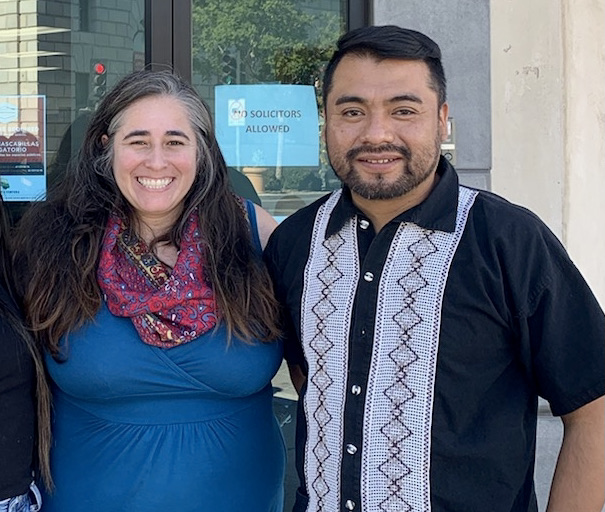MICOP Provides Invaluable Support to Thousands of Indigenous Residents
COVID Outreach Is Vital for Those Who Don't Speak English or Spanish

Mixteco Indigena Community Organizing Project (MICOP) has greatly expanded the services it offers to the Indigenous community in Santa Maria, including critical COVID outreach to clients who don’t speak English or Spanish and multifaceted assistance to unaccompanied, undocumented minors. MICOP opened its Santa Maria office in 2019 and now has a staff of 25. A 2009 farmworker study estimated there are 30,000-35,000 Indigenous residents in Santa Barbara County. MICOP has operated in Ventura County for 20 years.
MICOP is highly effective because its staff, which is 80 percent Indigenous, speak the languages, share the cultures, and has built trust among the community. Between the two counties, MICOP annually serves about 15,000 clients, mostly farmworkers and their families. Most clients are Mixteco, but Zapotecs, Purépecha, and other groups are also served. About 40 percent of MICOP’s $5.7 million budget is from public sources, and it receives major funding from the James Irvine Foundation, Weingart Foundation, and other notable foundations.
When COVID struck, the Santa Maria office had only a small Census team and an immigration specialist, who were able to provide only limited COVID assistance, but by early this year, funding allowed it to bring on a COVID team, which has played a critical role. (Funding enabled Ventura’s COVID outreach to begin there soon after COVID struck.) According to Associate Director Genevieve Flores-Haro, there was much ignorance about COVID — the languages do not even have a word for virus — and significant mistrust about vaccines because of misinformation circulating. MICOP, as a trusted organization with staff who speak the languages, was uniquely positioned to get info to this community so members could make informed decisions.
MICOP did outreach at grocery stores, laundromats, and other public places in Santa Maria, providing information and addressing questions. According to Santa Maria Program Director Ana Huynh, once MICOP staff provided information on the vaccines and addressed questions, hesitancy was typically overcome.
In Santa Maria, MICOP has partnered with County Public Health and other nonprofits to vaccinate people at its offices and offsite, including at a clinic where 500 farmworkers were vaccinated. It has facilitated testing and vaccinations by making appointments, which has been vitally important because of the language barrier, illiteracy, and lack of cell phones and computers. MICOP now offers rapid testing at its office. It also has distributed about 165,000 masks in the tri-county area.
Last year, the Santa Maria office hired a wage theft advocate to assist farmworkers who are paid less than they are owed. This all-too-common practice is enabled by wages tied to the quantity of crops picked, the language barrier, illiteracy, and fear of losing one’s job. This fear, according to Huynh, has proved quite challenging, as workers are grateful for their jobs and don’t want to rock the boat.
Sign up for Indy Today to receive fresh news from Independent.com, in your inbox, every morning.
The advocate has educated workers about their rights and benefits and assisted with two successful worker-led strikes. Some farmworkers qualify for sick leave benefits, and for the first nine months of this year, CA required all employers with more than 26 employees to provide workers with supplemental paid sick leave for COVID-related reasons. Yet because of the language barrier, many Indigenous workers were not aware of these benefits and, according to Flores-Haro, were reticent to take time off for testing or illness because they could not afford to miss work. Informing workers of their rights has been crucial for the health of the workers and the community at large.
A general caseworker in Santa Maria quickly became the go-to general resource, assisting with Medi-Cal, disability assistance, food assistance, rent support, domestic violence matters, and much more. A monthly distribution of grocery gift cards recently began, with 250-300 cards of $30-$40 distributed each month. Two immigration attorneys assist with a range of matters in both counties.
MICOP began assisting undocumented, unaccompanied minors in both counties a couple of months ago under a state-funded pilot program, Opportunities for Youth. In the last fiscal year, 90 of these minors were released in Santa Barbara County and 139 in Ventura County. Reaching these youth and their sponsoring families and getting them into the program has been challenging, according to Program Manager Leticia Sandoval, but four in Santa Barbara and 11 in Ventura County have joined and been connected with services offered by MICOP and others. Many of these youth have faced significant trauma in their home country, related Sandoval, so having a mentor address the social and emotional needs of youth is a vital part of the program. Planned workshops for family members will help them understand the trauma and how to better support the youth. Staff immigration attorneys handle deportation proceedings.
MICOP’s Tequio Program recently launched in Santa Maria to address serious, unmet needs of Indigenous youth. Parents typically work long days in the fields, leaving children unattended when not in school. According to Huynh, youth are subjected to significant bullying because of their inability to speak the language and differences in their appearances, causing some to avoid school entirely. With youth left unsupervised, Huynh related, harmful influences can lead to a range of unwanted behavior. So the Tequio Program, still in the design stage, seeks to provide a safe haven where youth will feel they belong and where their culture is celebrated. The program, well-established in Ventura County, has a small college scholarship component as well.
Pending funding sources, MICOP hopes to replicate in Santa Maria some of the many other valuable programs it operates in Oxnard.
For more info or to make a donation, go to http://mixteco.org.
Support the Santa Barbara Independent through a long-term or a single contribution.





You must be logged in to post a comment.